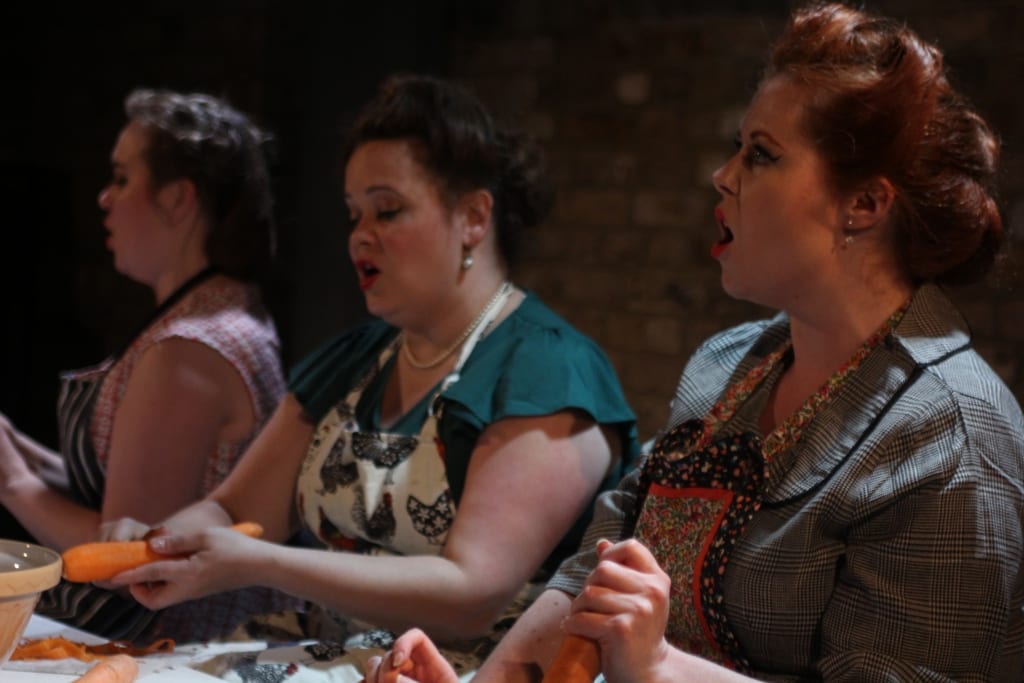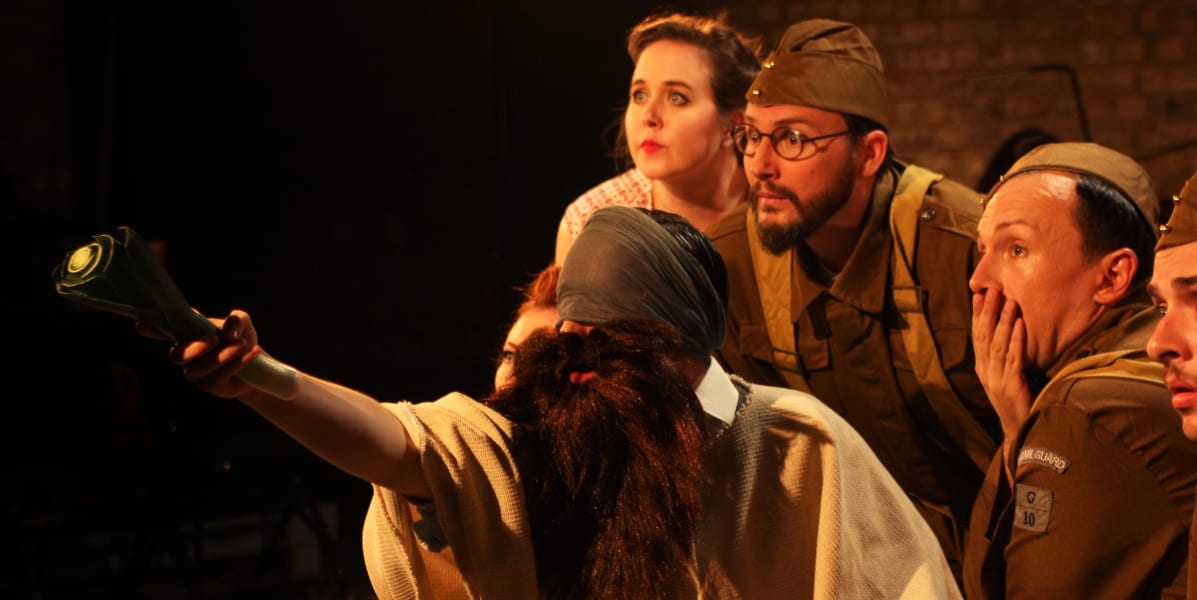Count Ory is a comic opera by Rossini that rarely gets performed today. Written for performance in Paris in 1828, the year the Duke of Wellington became Prime Minister, it was originally set – bizarrely for a comic opera – during the medieval crusades. Opera Alegria has set it during the crusade against the Nazis and the production does a great job in using the World War II setting to inject a range of verbal and visual jokes that both entertain, and distract attention from the gaping holes in the plot. We end up with a thoroughly enjoyable romp – Dads Army meets The Barber of Seville … with a touch of Nuns on the Run.
Count Ory is a lothario and a rake who has set his sights on the virtuous Adele. Adele lives with her kinswomen in Hurlingham Hall waiting for the return of her brother from the Front. First disguised as a Welsh fortune teller and then as a nun, Ory attempts to seduce her, aided by his band of ne’er-do-wells disguised at first as members of the Home Guard and later as nuns. Fortunately, Adele has already secretly given her heart to Nathaniel, a local farmer (the page boy, Isolier, in the original) and they thwart the randy Count and unmask his plot to abduct her.
Into this farcical set-up Benjamin Newhouse-Smith introduces a range of jokes, mostly funny but occasionally bordering on the worst possible taste. Ory’s disguise as the fortune teller includes the most absurd beard I have ever seen in opera. The beautiful trio at the beginning of the second act finds the three women peeling carrots and caressing them in a most suggestive way. And the three-in-a-bed finale is more Carry On than Covent Garden. But despite these awkward moments, the whole thing is triumphantly carried off by the sheer joie-de-vivre of the cast and the audience loved it, as did I.

In any stripped down performance of this sort – this one is in the tiny basement studio at The Arcola – there are bound to be uneven moments. The singing is mostly excellent. Naomi Kilby as Adele shines; the sweetness of tone she manages to bring to some demanding Rossinian bel canto is admirable and she even manages to maintain a shred or two of dignity in the final scene. Robert Jenkins is a bit more ‘naughty schoolboy’ than Don Juan but his flexible tenor voice improves as the opera progresses. In the ‘trouser’ role of Nathaniel, Adele’s lover, Alicia Gurney looked a little lost at first but soon hit her stride and matched Kilby’s soprano with style. As Ory’s tutor, Alistair Sutherland presents a figure of fun who has clearly lost control of his charge but he negotiates the demanding bass aria with aplomb. Some of the ensemble singing was a bit ragged – understandable with no conductor to rely on – and the balance of voices did not always blend as it should have. But these faults were more than outbalanced by the sense of fun all the cast brought to the farcical scenarios.
The set is minimal – a table and some wartime posters on the back wall for the first act, and a bed and some blacked-out windows for the second. The space is more than filled by the ten singers in almost constant motion and the piano is played brilliantly by Lindsay Bramley who also provided a fine new libretto “Smoke me a kipper, I’ll be home for breakfast” . An excellent production and just the sort of piece that belongs so well in the Grimeborn season.

